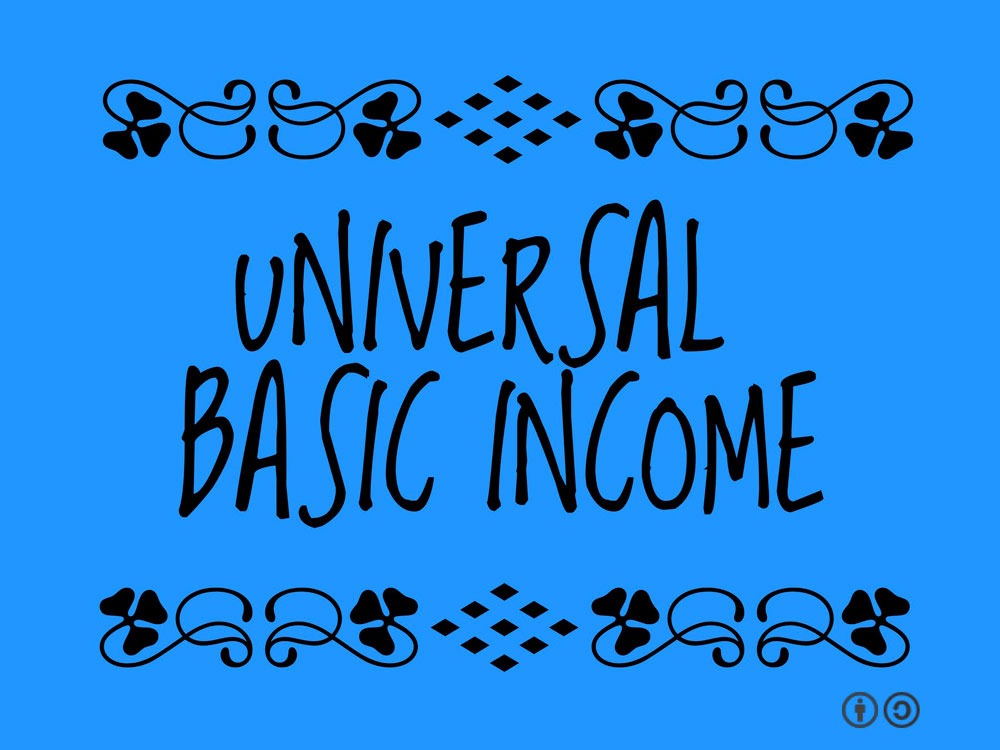
August 20, 2019; Teen Vogue
A recent article by Rebekka Ayres in Teen Vogue examines the concept of universal basic income (UBI). As Ayres puts it, UBI is “a prospective model of social security that’s gaining traction as a possible solution to growing wealth inequality and job instability.”
From time to time, we at NPQ have written about UBI. The idea has been popular in academic and policy wonk circles for decades, but only recently has become a topic of mainstream political discussion.
“While it sounds like a novel solution to a very modern problem,” Ayres writes, “the idea was first floated by mathematician and political activist Antoine Caritat, way back in 1795, and has resurfaced in various guises, notably during the civil rights movement, when Dr. Martin Luther King Jr. pushed for guaranteed income as a central measure of his Poor People’s Campaign.” More recently, back in 2000, the Boston Review ran a forum on the idea.
In recent years, mainstream support for UBI has grown, in part because fear of automation has led many to see wisdom in an “income floor” to ensure everyone enjoys a minimum standard of living from the wealth technology has generated.
Some elements of what a UBI policy might look like can be found in existing US law. As Spencer Wells noted in NPQ back in 2016, the earned income tax credit—which has been US tax policy since the 1970s—while not a true UBI policy, illustrates some of the dynamics because it provides unrestricted cash grants to qualifying families.
Sign up for our free newsletters
Subscribe to NPQ's newsletters to have our top stories delivered directly to your inbox.
By signing up, you agree to our privacy policy and terms of use, and to receive messages from NPQ and our partners.
Nowadays, the idea of a universal basic income policy is discussed increasingly openly. Two years ago, as NPQ’s Cyndi Suarez covered, the Hawaii state legislature officially authorized—by unanimous vote, no less—an initial study of the concept. And, as Ayres points out, “Democratic presidential candidate Andrew Yang has centered the issue in his 2020 campaign.”
One of UBI’s principal proponents—both decades ago and now—is the Belgian philosopher Philippe Van Parijs. Another contemporary advocate that Ayres cites is economist Ioana Marinescu, who likens UBI to “an insurance policy of sorts, cushioning against potential mass layoffs.”
Ayres also provides a useful overview of the mechanics and addresses some common questions about how UBI might be structured:
- How large would the basic income be? Ayres writes that, “Amounts that get discussed are generally fixed around the poverty threshold, so in the United States, according to 2018 Census data, that would be around $13,000 per year.”
- How would the government pay for it? Different people suggest different means of payment. Marinescu, Ayres writes, “suggests a carbon tax could present a realistic source of revenue.”
- What would happen to non-cash welfare benefits? This is the dangerous part. While some adherents suggest replacing welfare with UBI, a basic income of $13,000 would hardly do away with the need for Medicaid and other non-cash benefits. It is possible, though, that UBI might reduce some welfare expenditures.
- Has UBI been tried? Not on a large scale. However, for 40 years, the Alaska Permanent Fund has provide residents with a yearly dividend, financed from oil royalties. Ayres notes that in 2015 each resident received cash grants of around $2,000.
- Would everyone stop working? Only if you believe people will be satisfied with a poverty-level income. Marinescu tells Ayres, “The existing literature [concerning UBI pilots] finds that providing people with a minimal income only has a very small impact on work. First of all, we see it reduces the number of hours individuals work, but not the total number of people classified as employed.”
“Financially,” Ayres notes, “UBI is feasible.” What has generated controversy are concerns about the social effects it may or may not have on the workforce, such as fears that no one would work if limited universal cash grants became the law of the land.
But, as Ayres helpfully reminds us, “Universal Basic Income does not necessarily come with a universal meaning and could have different consequences depending on the specifics.” With considerable understatement, Ayres adds, “It’s likely that the UBI envisioned by anti-capitalists looks very different from the vision rising from Silicon Valley.”—Steve Dubb












